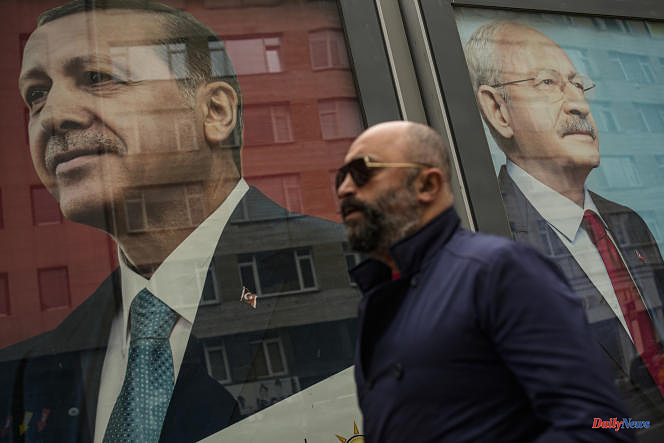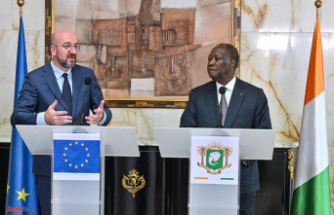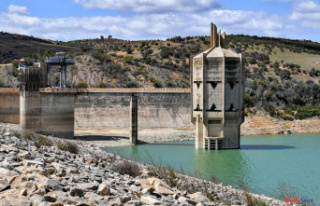Turkish President Recep Tayyip Erdogan, 69, faces the most uncertain election since coming to power in 2002 on May 14, facing a united opposition for the first time in twenty years in a country in crisis. Facing him, three contenders, but only one real opponent, who represents the most difficult electoral challenge for Recep Tayyip Erdogan. Kemal Kiliçdaroglu, 74, candidate of an alliance of six opposition parties that ranges from the nationalist right to the democratic left, and which is dominated by the CHP (social democrat) founded by the father of modern Turkey, Mustafa Kemal Ataturk.
A week before election day, presidential and legislative, clashes took place on Sunday, May 7, in a polling station in Amsterdam, set up for Turkish-Dutch voters wishing to vote early. The Dutch media broadcast images on Monday showing numerous police officers, some of them in riot gear or accompanied by dogs, separating the different parties. The fight broke out shortly before the closing of the polling station at the RAI conference center – intended to host major events in Amsterdam – after an altercation between representatives of opposing parties, according to Dutch public television NOS.
Asked by Agence France-Presse, the police replied that an investigation had been opened, without commenting immediately. According to NOS, quoting an anonymous official, it was a "significant incident". According to a witness, "there was shouting, panic and chaos". Calm returned a few hours later. The parties in conflict have not been named by the authorities. The Turkish-Dutch community in the Netherlands numbers around 400,000 people, mostly descendants of workers who emigrated to Europe between the 1960s and 1970s.
Accreditations of two OSCE observers refused
The parliamentary assembly of the Organization for Security and Cooperation in Europe (OSCE) also denounced, on Monday May 8, Turkey's refusal to accredit two Scandinavian deputies, who were to come to observe the presidential election of May 14. The Dane Soren Sondergaard (Socialist Red-Green Alliance) and the Swede Kadir Kasirga (Social Democrat) were thus not authorized by Ankara to make the trip.
"We are disappointed by this measure which could have a negative impact on the work of the international observation mission", declared in a press release the assembly, which sends more than one hundred elected officials in addition to the nearly 400 representatives sent by the instance itself. Turkey does not have to "influence the composition of the mission" based on "statements made" by MPs "as part of their political mandate", she added.
Mr Sondergaard said he was charged with "promoting a terrorist organization". In the past, he had visited the Syrian Democratic Forces (SDF), dominated by the Kurds and spearheading the fight against the Islamic State organization in Syria, with the support of the United States. "A country cannot choose the parliamentarians who serve as observers," he said. “It casts a shadow over the Turkish elections, they are already demonstrating that they want to control them. In 2018, Ankara had already blocked the way to two parliamentarians, a German and a Swede.












